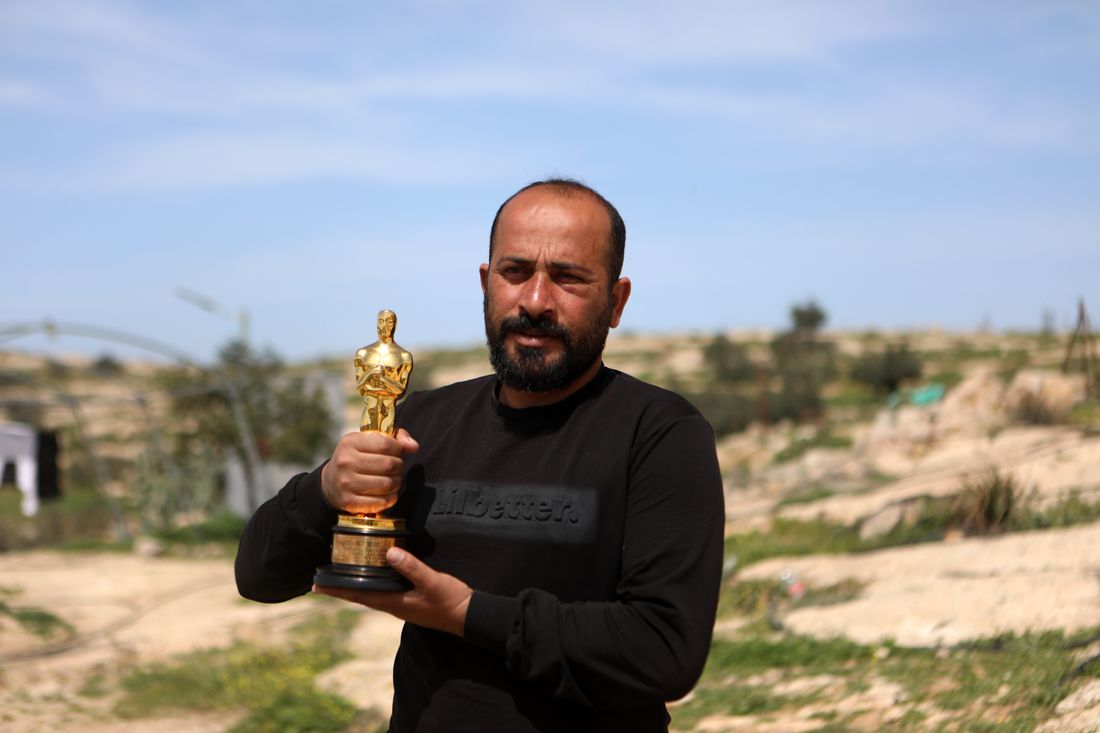
Approximately a month ago, on March 25th, Hamdan Ballal, director of “No Other Land,” was violently assaulted at his home. Subsequently, he was detained by the Israeli military overnight following an escalation in conflict between Palestinians and settlers in the Masafer Yatta region of the West Bank. Interestingly enough, just a few weeks before his arrest, Ballal and fellow directors Basel Adra, Yuval Abraham, and Rachel Szor had graced the stage at the Academy Awards to receive the award for Best Documentary. However, as Ballal expresses in his April 25th op-ed published in The New York Times, it felt as though the Oscars never occurred, or that the accolade held no significance, following the incident. “Our plight and our hardships were exposed to the world – and they watched and offered their support,” Ballal wrote, referring to the Oscars ceremony. “For years, we have strived to make ourselves and our cause known. With this recognition at the Oscars, we had achieved more than any of us could have ever dreamed.
Despite earning worldwide acclaim for our film, I still felt like we had fallen short – we as a team had failed – in our mission to improve our local community, he explained further. Following the arrest of Ballal, the Academy of Motion Picture Arts and Sciences issued a somewhat vague statement that, at least, acknowledged the existence of differing viewpoints among its members. However, it did not directly mention Ballal. In response, several Academy members like Mark Ruffalo, Todd Haynes, and Penélope Cruz, among others, signed an open letter expressing their criticism. Subsequently, the Academy issued a revised statement that extended an apology to Ballal personally.
In a piece entitled “My Oscar for ‘No Other Land’ Didn’t Shield Me From Violence,” Ballal bypasses the Academy’s internal disputes to share his apprehensions during his arrest. He expresses concerns for the safety and wellbeing of his wife, children, the land itself, and how his film’s success was both significant and insignificant amidst the brutality he experienced. He writes, “When we are prevented from farming and grazing due to expanding settlements and increasingly aggressive settlers and soldiers, we lose our livelihood, our sustenance, our customs, and our way of life. Fear is ever-present, from dawn till dusk.” Following his arrest, the media attention offered him a glimmer of hope that the world was more vigilant in observing the escalating violence in the West Bank. As a documentarian, Ballal finds power in observation. In conclusion, he implores readers to emulate his role as a documentarian by actively witnessing and not turning away now.
Read More
- 50 Ankle Break & Score Sound ID Codes for Basketball Zero
- Who Is Harley Wallace? The Heartbreaking Truth Behind Bring Her Back’s Dedication
- 50 Goal Sound ID Codes for Blue Lock Rivals
- Mirren Star Legends Tier List [Global Release] (May 2025)
- Pacers vs. Thunder Game 7 Results According to NBA 2K25
- League of Legends MSI 2025: Full schedule, qualified teams & more
- Pacers vs. Thunder Game 1 Results According to NBA 2K25
- Jeremy Allen White Could Break 6-Year Oscars Streak With Bruce Springsteen Role
- How to play Delta Force Black Hawk Down campaign solo. Single player Explained
- 100 Most-Watched TV Series of 2024-25 Across Streaming, Broadcast and Cable: ‘Squid Game’ Leads This Season’s Rankers
2025-04-25 22:53